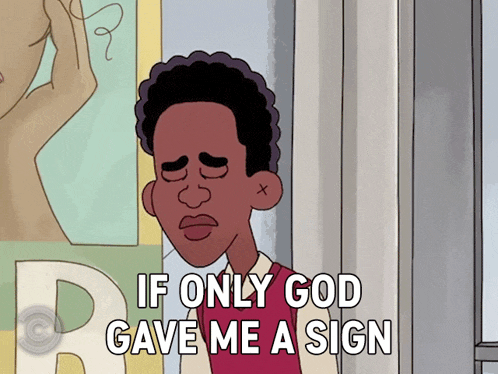What if God deliberately hardened someone's heart? Does that seem fair? In Exodus 7, we finally move from preparation to confrontation. After chapters of backstory and buildup, the showdown with Pharaoh begins in earnest. But before a single plague falls, God makes a startling declaration: "I will harden Pharaoh's heart, and though I multiply my signs and wonders in Egypt, he will not listen to you" (Exodus 7:3-4).
Wait—isn't the whole point to get Pharaoh to listen? If God is hardening his heart, how is that fair? This isn't just ancient theological conundrum—it's a powerful revelation about how God sometimes uses stubborn opposition to showcase His power, and how what appears to be a frustrating obstruction is actually setting the stage for a more magnificent display of divine glory.
The Battle of the Gods Begins
Exodus 7 shifts dramatically from preparation to direct confrontation with Egypt's power. The narrative progression builds with escalating tension:
Divine strategy revealed → Credentials established → Initial sign performed → Egyptian magicians duplicate → First plague unleashed → Temporary imitation achieved → Pharaoh hardens → Divine purpose advances
This isn't just storytelling – it's the opening round in a cosmic contest between the living God and Egypt's pantheon, with Pharaoh's hardened heart serving not as an obstacle but as the canvas upon which God will paint His masterpiece of deliverance.
The Staff-to-Snake Showdown
When Moses and Aaron first appear before Pharaoh, they perform the snake-staff sign as God directed. Pharaoh is unimpressed and summons his magicians who seemingly replicate the miracle.
This is extraordinary. The initial confrontation appears to end in a draw—both sides demonstrate supernatural power. But notice the significant detail: "Aaron's staff swallowed up their staffs" (7:12). Even in this apparent stalemate, God's supremacy is subtly displayed. The Egyptian magicians can imitate God's power, but they cannot overcome it. Their serpents become food for Aaron's serpent.
Notice how this initial sign establishes a pattern that will continue through several plagues:
God commands a sign
Moses/Aaron perform it
Egyptian magicians attempt replication
Pharaoh's heart hardens
God's purposes advance regardless
This pattern reveals something profound: God isn't merely trying to convince Pharaoh—He's systematically demonstrating His superiority over every aspect of Egypt's religious and magical system.
THE BLOOD PLAGUE: STRIKING EGYPT'S LIFEBLOOD
The first full plague strikes at Egypt's most vital resource: "The Nile will turn to blood... the fish in the Nile will die, and the river will stink; the Egyptians will not be able to drink its water" (Exodus 7:17-18).
What God does: Transforms Egypt's lifeblood into death
Why this specific target matters:
The Nile was Egypt's most crucial natural resource
Egypt worshipped the Nile through gods like Hapi and Osiris
The river represented fertility, sustenance, and national identity
Egypt prided itself on irrigation and water management
The theological message:
Egypt's source of life is under Yahweh's authority
Their water deities are powerless before Him
The very resource they depend on can become their punishment
The God of slaves controls what the empire most values
Remarkably, Pharaoh's magicians managed to replicate this plague on a smaller scale—turning water to blood—but notice the absurdity: Egypt doesn't need more blood-water; they need the restoration of clean water. The magicians can only add to Egypt's problems, not solve them!
The Hardening of Pharaoh's Heart
The most troubling aspect of Exodus 7 is God's declaration: "I will harden Pharaoh's heart" (7:3). This divine action appears repeatedly throughout the plague narrative, raising profound questions about free will and divine sovereignty.
Yet the text maintains a careful balance. In Exodus 7:13, we read that "Pharaoh's heart became hard" (passive), while in 7:22, "Pharaoh's heart became hard and he would not listen" (active). This nuanced language suggests an interplay between God's sovereign hardening and Pharaoh's own stubborn choices.
What looks like a theological problem is actually a profound statement about how God works with human resistance:
God doesn't create Pharaoh's evil inclinations but directs them toward divine purposes
Pharaoh's hardening becomes the occasion for greater displays of God's power
The same miracles that harden Pharaoh will convince Israel of God's might
What seems like an obstacle to salvation becomes its very means
This apparent roadblock becomes the foundation for God's greater glory and Israel's deeper faith.
MAGICIANS VS. THE ALMIGHTY
Have you ever noticed the FASCINATING ROLE of Pharaoh's magicians in this cosmic showdown?
These weren't just court entertainers—they were RELIGIOUS PRACTITIONERS representing Egypt's spiritual power! Their names, according to later Jewish tradition, were Jannes and Jambres (mentioned in 2 Timothy 3:8).
When Aaron throws down his staff and it becomes a snake, these magicians step up with their "secret arts" and apparently do the same thing! For a moment, it looks like we've got a supernatural POWER STANDOFF.
But don't miss what happens next: "Aaron's staff swallowed up their staffs" (7:12).
This isn't just a magic trick—it's PROPHETIC FORESHADOWING! Just as Aaron's serpent consumes the Egyptian serpents, so would the God of Israel swallow up Egypt's power and claims of divinity through the coming plagues.
Then with the blood plague, the magicians again duplicate the miracle on a smaller scale. But notice the ABSURD IRONY—they're making MORE blood-water when Egypt is already suffering from TOO MUCH blood-water!
It's like a man with a flooded basement showing off that he can add more water! The magicians can only INCREASE Egypt's problems, not SOLVE them!
Their limited power reveals three profound truths:
Supernatural abilities aren't necessarily evidence of divine approval
Demonic powers can imitate God's work but can't overcome it
False spiritual systems can create problems but can't provide solutions
Remember this divine power contest when you face opposition that seems to match God's work! The enemy may imitate, but only God can liberate. Counterfeits may temporarily duplicate, but they ultimately can't duplicate deliverance!
WALK THRU TRIVIA CHALLENGE
Question: In Exodus 7, how long did the plague of blood last before it ended?
A) Three days B) Seven days C) Ten days D) Until Moses prayed for it to end
Check your answer below!
THE ESCALATION PRINCIPLE
The most strategic aspect of Exodus 7 isn't just the miracles—it's how God methodically escalates the confrontation:
"Then I will lay my hand on Egypt and with mighty acts of judgment I will bring out my divisions, my people the Israelites. And the Egyptians will know that I am the LORD" (Exodus 7:4-5).
This reveals a profound truth about divine operations against entrenched opposition: God often works through progressive escalation rather than immediate culmination. The equation is divine strategy:
Initial demonstration → Opportunity for response
Resistance encountered → Intensity increased
Partial measures resisted → More comprehensive measures employed
Throughout Scripture, we see this pattern continue. God rarely brings His full judgment immediately but escalates warnings and consequences to give opportunity for repentance. With Nineveh, forty days of warning. With Jerusalem, years of prophetic messages before exile.
This principle reminds us: divine patience should never be mistaken for divine impotence. What appears to be God's delay is actually His strategic escalation, giving opportunities for repentance while preparing for more decisive action.
Your Turn to Walk Through
As you read Exodus 7 again (and I encourage you to do so), consider:
Where might God be using opposition in your life to display His greater purpose?
What "magicians" in your culture appear to duplicate God's work but cannot truly deliver?
How might God be strategically escalating situations in your life to reveal His power?
Remember, this isn't just ancient history—it's a window into how God still works through stubborn opposition and apparent stalemates, using resistance as the backdrop for more magnificent displays of His power and glory.
The Path to Christ
Exodus 7 points to Jesus in remarkable ways. Just as God used Pharaoh's hardened heart to display His power, the hardened hearts of religious leaders in Jesus' day set the stage for His greatest miracle—resurrection from the dead. Paul explains this connection explicitly: "For Scripture says to Pharaoh: 'I raised you up for this very purpose, that I might display my power in you and that my name might be proclaimed in all the earth'" (Romans 9:17).
The blood-turned Nile foreshadowed Christ's greater blood miracle. While the Nile's blood brought death to Egypt, Jesus' blood brings life to all who trust in Him. The Egyptian magicians could imitate God's works superficially, just as false messiahs and teachers might perform signs and wonders, but only Jesus offers genuine deliverance.
Perhaps you find yourself troubled by how God works through hardened hearts and opposition. The cross of Christ reveals that God doesn't cause evil but sovereignly works through it for redemptive purposes. The greatest injustice in history—the crucifixion of the innocent Son of God—became the world's greatest salvation.
Are you resisting God's work in your life? Like Pharaoh, each time we harden our hearts against God's truth, we become less able to respond to future opportunities. The same sun that melts wax hardens clay. The same gospel that brings salvation to receptive hearts can harden resistant ones.
Jesus offers you a new heart today—not one hardened by pride or self-sufficiency, but softened by His love. Unlike the temporary relief that came between Egypt's plagues, Christ offers permanent freedom from sin's bondage. Will you respond to Him today, or will you harden your heart? The God who orchestrated the exodus is orchestrating your opportunity for deliverance right now through Jesus Christ.
When you surrender to Christ, the blood that stained the Nile as judgment becomes the blood that cleanses you as mercy.
TRIVIA ANSWER
Answer: B) Seven days
Exodus 7:25 states, "Seven days passed after the LORD struck the Nile." This detail of the seven-day duration is significant as it showed this wasn't a brief natural phenomenon but a sustained divine intervention that Egypt's powers could neither prevent nor remedy.








